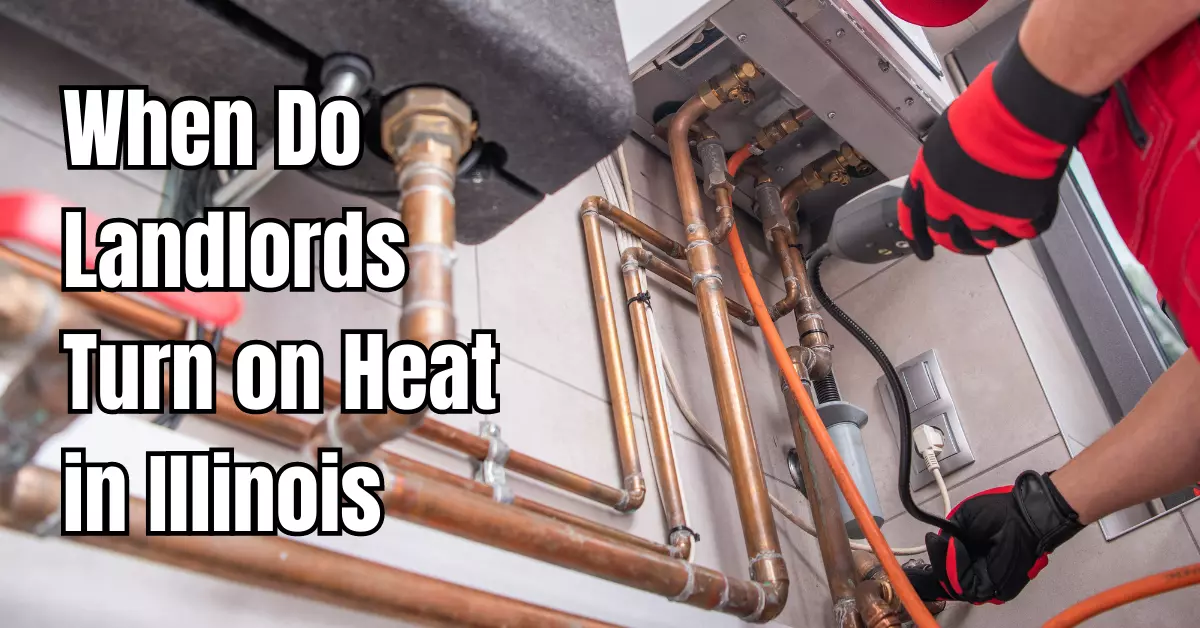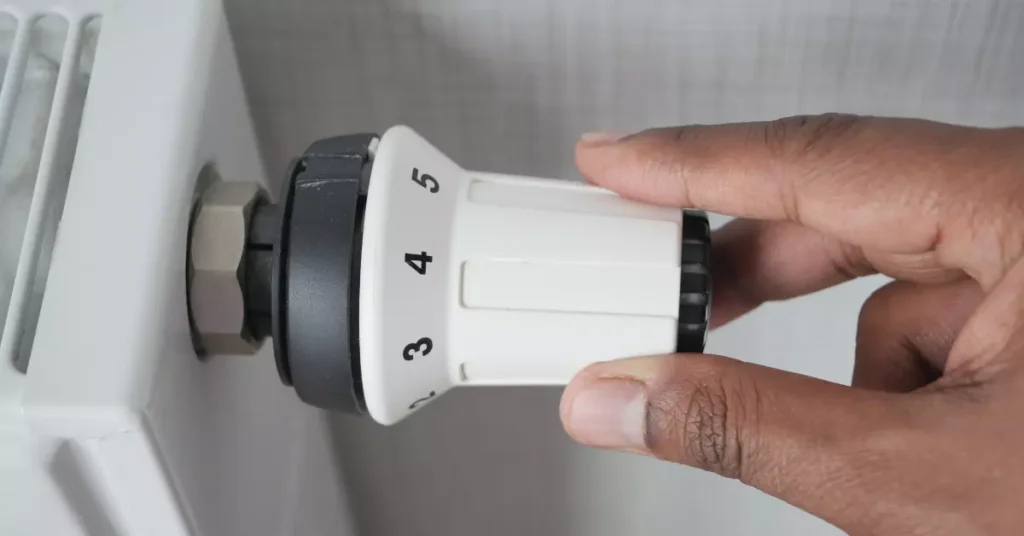When Do Landlords Turn on Heat in Illinois? Rental Awareness
Landlords are required by law to turn on the heat in Illinois starting from September 15th through June 1st. As temperatures begin to drop in Illinois, tenants may wonder when their landlords are required to turn on the heat.
According to Illinois law, landlords are required to provide heat from September 15th through June 1st. This is to ensure that tenants have a habitable living environment during the colder months.
However, landlords are not required to maintain specific temperatures, as long as the heat source is able to maintain a minimum temperature of 68 degrees Fahrenheit during the day and 66 degrees Fahrenheit at night.
Tenants who experience issues with heat during the required period should contact their landlords immediately to address the problem.

Understanding Illinois Landlord-Tenant Laws On Heating
If you are a tenant in Illinois, you might have some concerns about when your landlord is obligated to turn on the heat during the cold months.
It’s essential to understand the rules and regulations around this issue to protect your rights as a tenant.
Below, we will discuss the key aspects of the Illinois landlord-tenant laws related to heating, minimum heating requirements, and factors that influence when landlords turn on the heat.
Overview Of The Illinois Landlord-Tenant Laws
The Illinois landlord-tenant law governs the relationship between landlords and tenants in the state. The law outlines the responsibilities of landlords, including the obligations to provide habitable premises and to make repairs as necessary.
Under the law, landlords are required to provide heat during the winter months, typically from September 15 to June 1.
The temperature inside each dwelling unit must be at least 68 degrees Fahrenheit during the day and 66 degrees Fahrenheit at night.
The Minimum Heating Requirements For Illinois Rental Properties
To meet the minimum heating requirements under the Illinois landlord-tenant laws, landlords must provide:
- Operable heating facilities that are capable of maintaining a temperature of at least 68 degrees Fahrenheit during the day and 66 degrees Fahrenheit at night.
- Heating facilities that are safe and hazard-free.
- A working thermostat that accurately regulates the temperature.
A landlord who fails to provide sufficient heat can face penalties and fines. Tenants should report any heating issues to their landlord promptly.

Factors That Influence When Landlords Turn On Heat In Illinois
The following factors may influence when landlords turn on the heat in Illinois:
Outdoor temperature
Landlords may wait until outdoor temperatures reach a certain level before turning on the heat.
However, they must abide by the minimum temperature requirements outlined in the Illinois landlord-tenant law.
Lease agreement
The lease agreement may specify when the landlord is required to turn on the heat.
Cost
Heating can be an expensive utility. Landlords may delay turning on the heat to save money on utility bills.
Building insulation
The insulation of the rental property can influence how quickly the temperature falls below the minimum level. Landlords may turn on the heat earlier if the building has poor insulation.
Tenants in Illinois can expect their landlords to provide heat during the winter months and maintain an indoor temperature of at least 68 degrees Fahrenheit during the day and 66 degrees Fahrenheit at night.
While several factors can influence when landlords turn on the heat, they must comply with the minimum heating requirements under Illinois law.
Tenants who have issues with heating should report them promptly to their landlord to ensure a safe and comfortable living environment.
The Best Time For Landlords To Turn On Heat In Illinois
When do landlords turn on the heat in Illinois: the best time for landlords to turn on the heat in Illinois.
When the weather starts to get chilly in Illinois, landlords must consider when to turn on the heat to ensure their tenants stay warm and comfortable during the colder months.
Here are some essential tips that landlords should consider regarding the best time to turn on the heat.

How Weather Patterns And Temperature Affect Landlords Turning On Heat
There are several factors to consider when determining the best time to turn on the heat in illinois. Here are some of the key considerations:
The average temperature
According to Illinois law, landlords must provide heat from September 15 to June 1. However, landlords may choose to turn on the heat earlier or later based on the average temperature.
Weather patterns
During the fall and winter months, Illinois can experience unpredictable weather. Landlords should track weather patterns to ensure that the heat is turned on before a cold snap arrives.
Tenant comfort
Ultimately, landlords should prioritize tenant comfort when determining when to turn on the heat. They should take feedback from tenants about the temperature and adjust accordingly.
An Analysis Of Rental Contract Provisions For Heat Turn-On Time
When crafting lease agreements, landlords should include provisions detailing when the heat will be turned on. Here are some common provisions that landlords include in their rental contracts:

Date-specific
Some landlords may include a specific date in the lease agreement for turning on the heat. This is helpful for tenants who want to plan their move-in around the heat being turned on.
Temperature-based
Other landlords may choose to turn on the heat based on the temperature. For example, the lease agreement could state that the heat will be turned on when the outside temperature drops to a certain degree.
Late-fee penalties
To ensure tenants pay their rent on time and prevent delayed payments, landlords may include a late fee penalty if tenants do not pay rent on time.
This provision can help in ensuring that tenants pay on time, which can cover the expenses of the heat.
Best Practices In Turning On Heat To Avoid Complaints And Legal Issues
Turning on the heat is not just about keeping the tenants warm, but it also helps in avoiding any complaints or legal issues. Here are some best practices landlords should consider when turning on the heat:

Inspection
Before turning on the heat, landlords should inspect the heating system to ensure it is functioning adequately and is safe to use.
Early maintenance
Regular maintenance of the heating system can prevent any malfunctions during the winter months and ensure that tenants remain comfortable.
Clear communication
Comprehensive communication with tenants regarding when they should expect the heat to be turned on can reduce any complaints of delay.
Landlords should consider various factors when deciding the best time to turn on the heat. Tenant comfort should be a priority, and landlords should include provisions in their lease agreements to avoid any legal issues.
By following these best practices, landlords can ensure their tenants remain comfortable and avoid any complaints or legal troubles.
Frequently Asked Questions On When Do Landlords Turn On Heat In Illinois
When Do Landlords Turn On Heat In Illinois?
Landlords must provide heat from September 15 to June 1 at a minimum of 68°f in Illinois.
How Can I Ask My Landlord To Turn On The Heat?
If your landlord has not turned on the heat, send a written request outlining the issue.
Can A Landlord Refuse To Turn On The Heat In Illinois?
Landlords cannot refuse to provide heat to tenants in Illinois during the mandated period.
What Can I Do If My Landlord Does Not Turn On The Heat?
If your landlord does not provide heat, you can file a complaint with the Illinois attorney general’s office.
Conclusion
Feeling the chill in your Illinois apartment? Don’t worry, you’ve got rights.
By law, your landlord must ensure your home is toasty between September 15 and June 1, maintaining a minimum of 66°F. Keep this in mind to enjoy a warm, cozy winter!
Reference
https://311.chicago.gov/s/article/Chicago-heat-ordinance?language=en_US